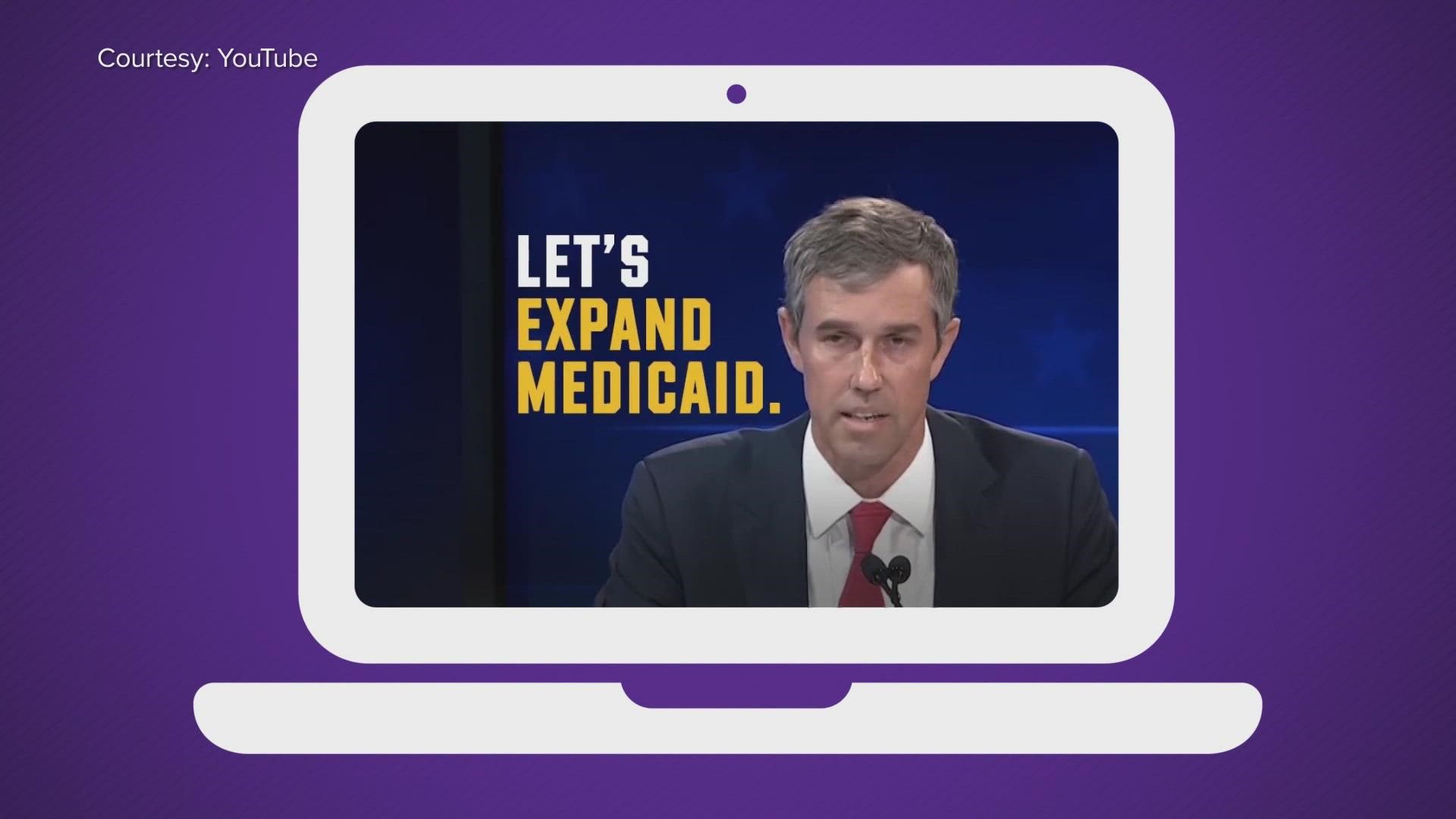DALLAS — Since the one and only Texas gubernatorial debate was held on a recent Friday night during high school football season, many voters probably didn’t catch it.
Since I was there covering the debate, I live-tweeted the meeting between the two candidates.
One of those tweets blew up across the state and the country—even a continent away. It was the one about Democrat Beto O’Rourke criticizing incumbent Republican Governor Greg Abbott’s decision not to expand Medicaid in Texas years ago. O’Rourke said he would opt to expand the program if he were governor so that Texas could stop missing out on billions of dollars from the federal government every year.
Medicaid was expanded in 2014 by the Affordable Care Act (otherwise known at the time as “Obamacare”) in order to provide healthcare coverage to more low-income Americans.
Governor Greg Abbott’s position
From the beginning, Governor Abbott has been consistent in his opposition to the expansion for many reasons, including that he believes Medicaid is already a “broken and bloated” program. After he was elected governor, he proclaimed Texas would “exercise its constitutional right to refuse” the expansion of the benefits.
At first, the federal government paid 100% of the cost of those expanded benefits. That federal contribution then dropped to 90%, with the additional 10% of the cost made up by the states that opted into the program.
As Governor Abbott explained in this television appearance in the early years of Medicaid expansion, he was convinced that over time, the federal government would pay less and less of the cost and shift more of the burden to states. All these years later though, the federal government still pays 90% of the cost of expanded Medicaid.
Gubernatorial candidate Beto O’ Rourke’s position
Beto O’ Rourke made the case for Medicaid expansion during the debate and has made the issue a key point in his bid to unseat Governor Abbott. O’Rourke says that as governor, he would opt into the program.
Here is O’Rourke’s plan, in which he says that because the state is not getting those extra billions in federal money to cover more Texans if they need health care, “...all of us foot the bill in the form of higher insurance premiums and higher taxes to our local hospital districts—which helps to explain why Texas has some of the highest property taxes and health care costs in the entire country.”
Politifact has assessed a related O’Rourke statement in which he said that if Governor Abbott had expanded Medicaid at the beginning of his administration, it would’ve brought $100 Billion into the state’s economy. The site weighed the facts and rated the O’Rourke statement “mostly true” because it was “accurate but needs additional context.”
Estimates say Medicaid expansion would bring in billions to Texas
Years ago, the non-partisan Texas analytics firm, The Perryman Group, predicted that by not opting in, this state would lose out on $90 billion dollars in federal healthcare funding over 10 years. They also estimated that Medicaid expansion would’ve made for a “more productive…healthier population” in Texas and that opting into the changes would have created an average 350,000 more jobs per year and $300.8 billion more in state economic output.
Even the Bush School at Texas A&M said in a 2020 write-up that Medicaid expansion “should be carefully considered.” Relying in part on a graphic analysis that shows anywhere from hundreds of people in some Texas counties to hundreds of thousands of people in others would be eligible for expanded Medicaid, the Bush School concluded that 954,000 uninsured Texans would get insurance coverage if the state took part in the program.
Even though Texas currently gets billions of dollars in federal money every year to help offset uncompensated health care that is delivered to uninsured Texans, it has been estimated that the state could be receiving many billions more by signing on to expanded Medicaid and getting coverage for nearly a million more Texans who currently might not be able to pay for the medical bills they incur.
Medicaid expansion a key focus of governor’s race, and possibly the next legislature
If the outcome of the gubernatorial election next month doesn’t change the Medicaid expansion policy in place in Texas, next year’s Texas legislative session could change it. The idea of expanding Medicaid in Texas got a lot of bipartisan support in the last legislative session in Austin but did not have enough backing from key leaders at the legislature to push it through.

